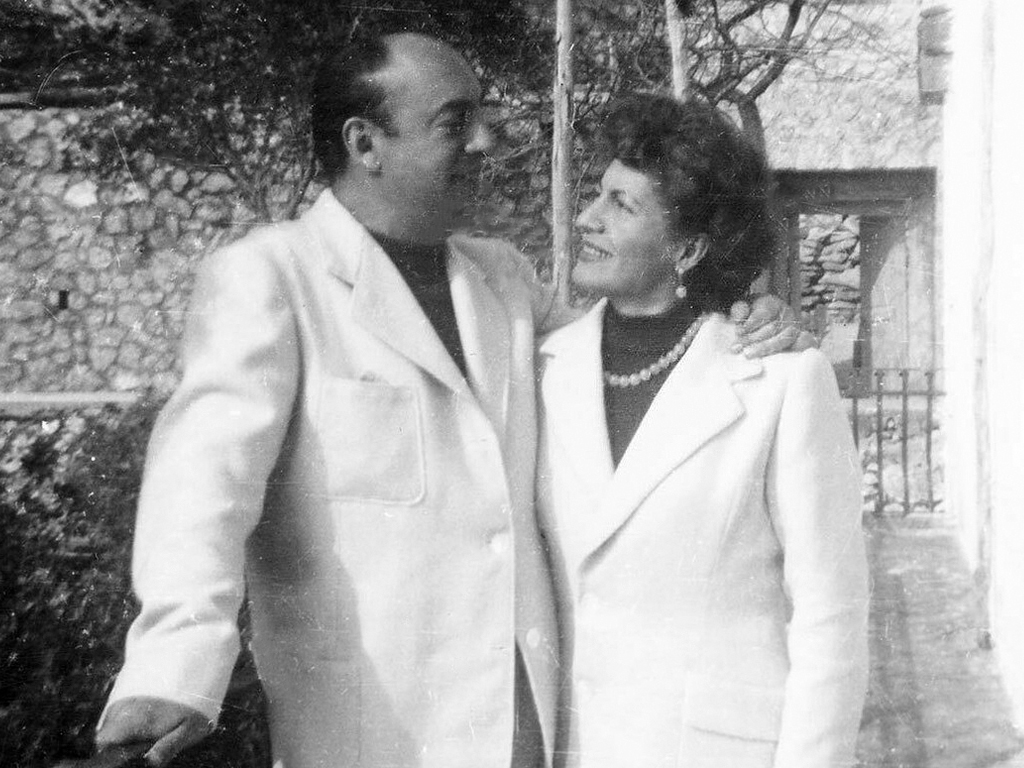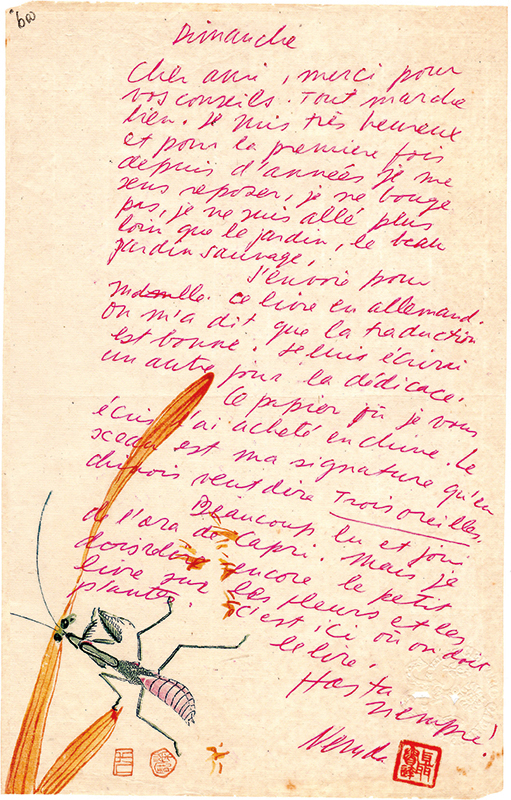
1952
È gennaio quando Pablo Neruda sbarca a Capri. Non è solo. Lo accompagna Matilde Urrutia, il grande amore della sua vita
«Ricordiamoci di Capri, Matilde. Mentre viviamo non possiamo capire. E quando siamo in grado di capire non viviamo più. Ricordiamoci questo venti gennaio, questo freddo, questo mare, quest’anno che per noi è tutto. Ricordiamoci questo millenovecentocinquantadue».
gennaio, questo freddo, questo mare, quest’anno che per noi è tutto. Ricordiamoci questo millenovecentocinquantadue».
Pablo Neruda parla così a Matilde Urrutia nel romanzo di Ruggero Cappuccio La prima luce di Neruda.
Lo scrittore era stato costretto a fuggire dal Cile nel febbraio del ’49 perché attivamente in contrapposizione con il governo del suo paese. Prima a Parigi, poi in Italia. Si trova a Napoli quando lo raggiunge un ordine di espulsione che sarà presto revocato. Il deputato Mario Alicata scrive allora un’accorata lettera a Edwin Cerio chiedendogli di ospitarlo ed Edwin risponde inviando un telegramma direttamente a Neruda: «Venga, l’aspetto a Capri. C’è una villa, la Casetta di Arturo, pronta per ospitarla. Lì starà tranquillo, potrà finire il suo libro e riposarsi».
Capri e la Casetta di Arturo diventeranno per Don Pablo e Matilde la cornice di un’unione sempre più profonda e a poco a poco scopriranno quella «Capri recondita, dove si entra solo dopo un lungo pellegrinaggio e quando ormai l’etichetta di turista ti si è staccata di dosso», come scrive nella raccolta di memorie Confesso che ho vissuto.
Vi resteranno sei mesi. Poi con la progressiva perdita di potere del governo Videla, nell’agosto dello stesso anno, Neruda tornerà finalmente in Cile.
It was January when Pablo Neruda landed on Capri. He wasn’t alone. Accompanying him was Matilde Urrutia, the great love of his life
“Let’s remember Capri, Matilde. While we are living, we cannot understand. And when we are able to understand, we won’t be alive any more. Let’s remember this 20th of January, this cold, this sea, this year that for us is everything. Let’s remember this 1952.” That is what Pablo Neruda says to Matilde Urrutia in Ruggero Cappuccio’s novel La prima luce di Neruda.
The writer was forced to flee Chile in February 1949 because of his active involvement in the opposition to the government. He went first to Paris and then to Italy. While in Naples, he received a deportation order that was quickly revoked. An Italian member of parliament, Mario Alicata, wrote a desperate letter to Edwin Cerio at the time, asking him if he would put Neruda up, and Edwin responded by sending a telegram directly to Neruda: “Come, I’m expecting you on Capri. There’s a villa, the Casetta di Arturo, ready for you to stay in. You’ll find it peaceful there, and you’ll be able to finish your book and to rest.”
For Don Pablo and Matilde, Capri and the Casetta di Arturo became the setting for an ever deeper union, and bit by bit they would discover that “hidden Capri, that you enter only after a long pilgrimage, after the tourist label has peeled off from your clothes” as Neruda writes in his memoirs, I confess I have lived. They remained there for six months. Then, as the Videla government progressively lost power, Neruda finally returned to Chile in August of the same year.





